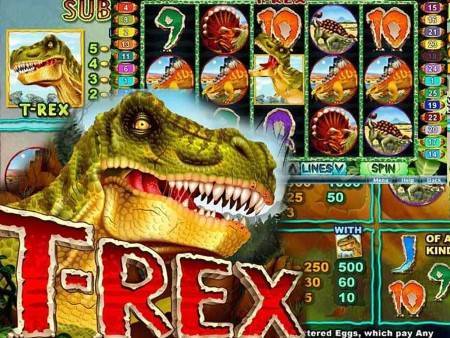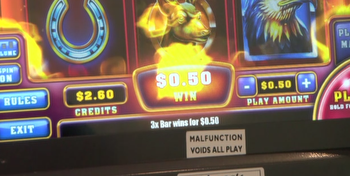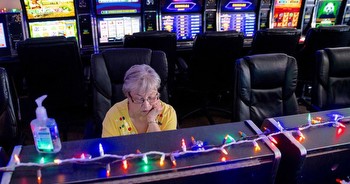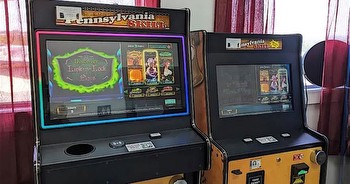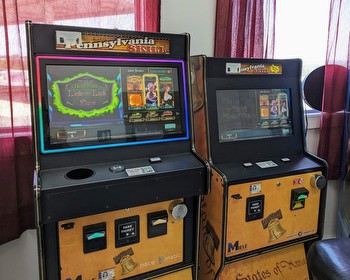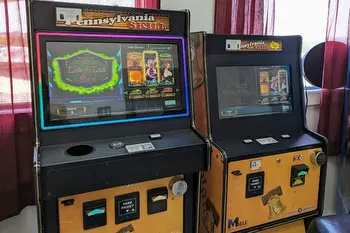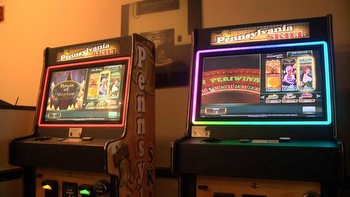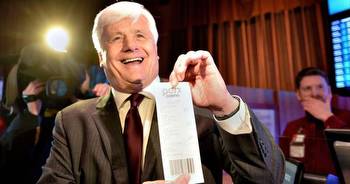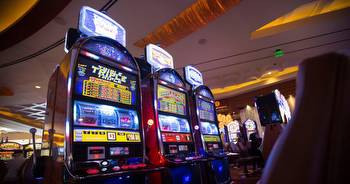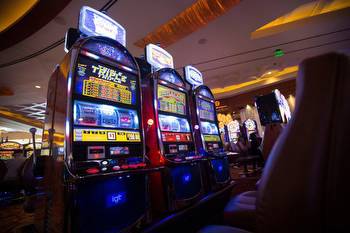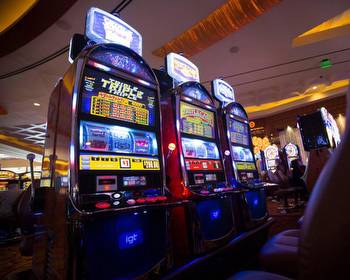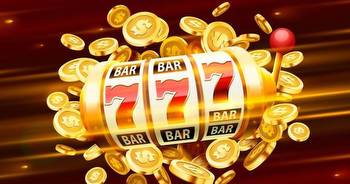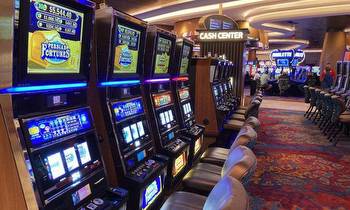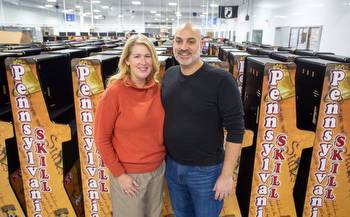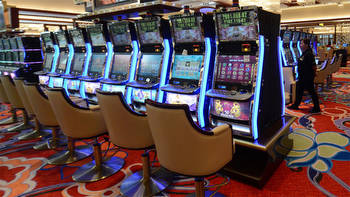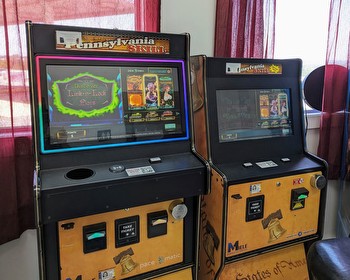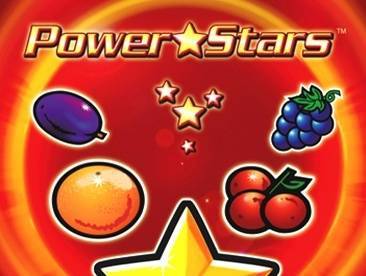'Don’t have to go to a casino': Skill games growing in popularity across Pennsylvania
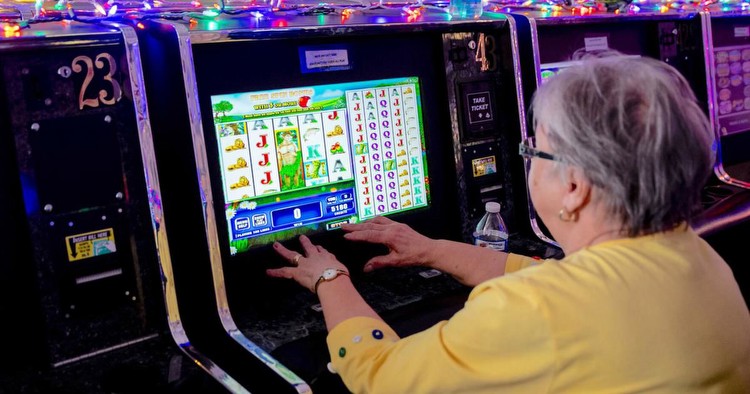
JOHNSTOWN, Pa. – Michael Barley, Pace-O-Matic’s chief public affairs officer, describes the company’s interactive video Pennsylvania Skill games as akin to golf or blackjack – in which a player can increase chances of winning by making certain educated decisions.
But Josh Ercole, executive director of the Council on Compulsive Gambling of Pennsylvania, views them as betting devices.
Pennsylvania’s courts have consistently ruled that playing the machines involves skill, and therefore they can be placed in businesses without regard to gaming laws.
As a result, there are now about 18,000 Pennsylvania Skill games, designed by the Pace-O-Matic software company, in the state. That total does not include machines from other companies such as Georgia-based Banilla Games.
Elaborating on the legal differences, Barley pointed to the fact that with the skill games, there is no “compensating algorithm” involved in determining a win or a loss, as there is with programmed slot machines.
Players can make choices – such as deciding what to pick as the “wild” square after a spin in an attempt to complete a three-in-a-row winning line.
“Since our game is a skill game, we don’t have a set payout rate or any algorithm that says, ‘You have to lose this much to win,’” Barley said. “It’s really based off of how people play the game.
“So sometimes it takes a game longer to go through its software package than other games, depending on who’s playing it. Really, what the license enables a location operator to do is to generate $10,000 of profit. Again, that can take months, a year. It just depends on who’s playing it and how they’re playing it.”
To Ercole, there is not much difference at all between skill games and betting devices.
“I think where things get lost,” Ercole said, “is the fact that that these machines are so similar to what we see on the gaming floor in casinos across the state, with slot machines and that type of game.
“So to add one element that includes skill and base the entire argument around that – that these types of games are now not to be considered the same as other machines – I think that that’s dangerous, honestly.”
‘Player interaction’In March, the Supreme Court of Pennsylvania declined to review a lower court decision in which Banilla Games’ Keystone Skill games were ruled to be skill games, not gambling devices, and therefore could be legally operated.
The case dated back to 2019 and 2020, when the state Bureau of Liquor Control Enforcement seized 11 machines at establishments. Ten of the machines were owned by Pinnacle Amusement and had been manufactured by Banilla Games.
BLCE officials argued that the inclusion of what it considered to be purposely unappealing skill-based activities in order to be labeled a skill game would create a slippery slope that could allow others to circumvent gambling prohibitions.
But the courts determined that using the Keystone Skill games’ “Follow the Banana,” “nudge” and “hot swap” functions constituted skills. “Nudge” and “swap” allow players to make moves to create a winning alignment of symbols. “Follow the Banana” is a memory game that allows successful users to recoup 104% of the last wager made.
“I’ll let the judges’ decision speak for itself,” Banilla Games Chief Development Officer Kevin Morse said. “But the bottom line is, you can never get anything from one of these games without the absolute correct player interaction. At the end of the day, that’s what determines if the player gets anything. It’s a skill – the skill of the player.”
Meanwhile, the Commonwealth Court of Pennsylvania ruled in November that Pace-O-Matic’s terminals are skill games, not slot machines.
“We’ve never lost a court case in Pennsylvania – really, anywhere – on the legality of our game and it being determined a skill game,” Barley said.
‘Gambling machines’?Even after years of discussion and court cases, Ercole said, there still remains “polarization and volatility” concerning the games, and whether they are gambling devices is a “topic of contention.”
He said the Council on Compulsive Gambling of Pennsylvania “tend(s) to stay neutral” regarding gambling, but stressed that there are elements of risk for some players.
“Regardless of what they’re going to be called on a legal basis, the population out there looks at them as gambling machines,” Ercole said. “They think they’re gambling when they play them. And they’re struggling the same way that we see people who are struggling with other types of gambling. That’s really what it comes back to.”
Ercole said providing protections and resources is the “most important” step that can be taken.
He would like to see additional oversight regarding the number of machines permitted at a given location and where they can be placed within those establishments, along with improved enforcement of age restrictions.
Ercole noted that the 1-800-GAMBLER National Problem Gambling Helpline is not posted near the machines, but it gets a multitude of calls every year, with people saying the skill games are “their most problematic type of gambling.”
‘Extra income’Miele Manufacturing, of Lycoming County, makes the physical Pennsylvania Skill game machines for Pace-O-Matic, which is based in Georgia.
Last spring, Miele and Ken’s BiLo, a supermarket chain with locations in Northern Cambria and Patton that have skill games, donated more than $25,000 combined to 10 volunteer fire companies in the northern tier of Cambria County.
“We decided that was the right thing to do because they were hurting and things had been off for them. … The feedback that we got from that, these guys really appreciated it,” said Ken Gibson, owner of Ken’s BiLo.
Regarding revenue from the skill games, Gibson said, “as far as sales per square foot, we haven’t had anything in the grocery store that did that well.”
The extra money has been “a savior for a lot of small businesses,” according to Gibson. It also helps fraternal organizations, such as ethnic clubs and veterans groups, that set up machines.
“It’s brought us extra income,” Gibson said. “People don’t have to go to a casino. We’ve got a nice, clean, safe, secure location for people to come and play these without having to drive to Pittsburgh or wherever. Then you think of the money in the local economy.”
In terms of the business arrangements, Pace-O-Matic usually keeps less than 10% of the revenue from its machines, according to Barley.







